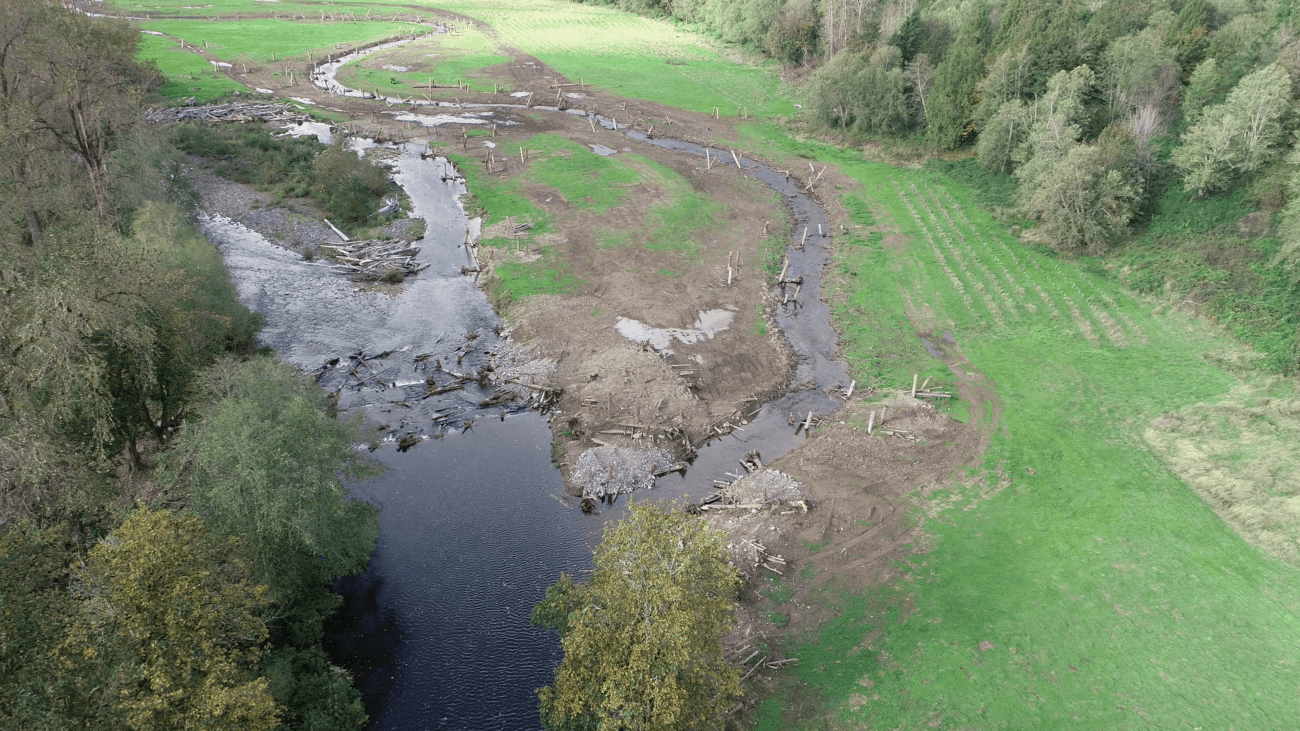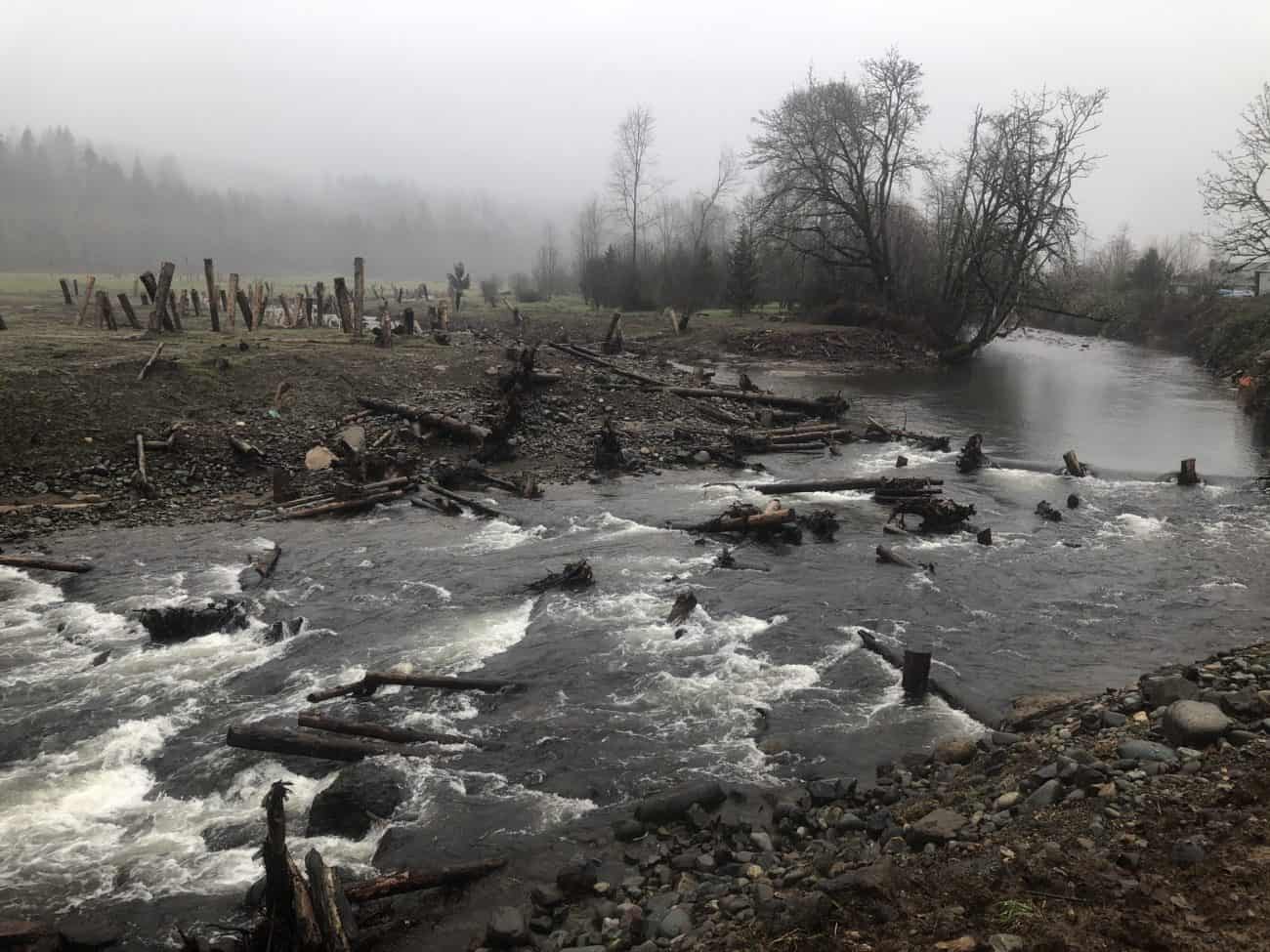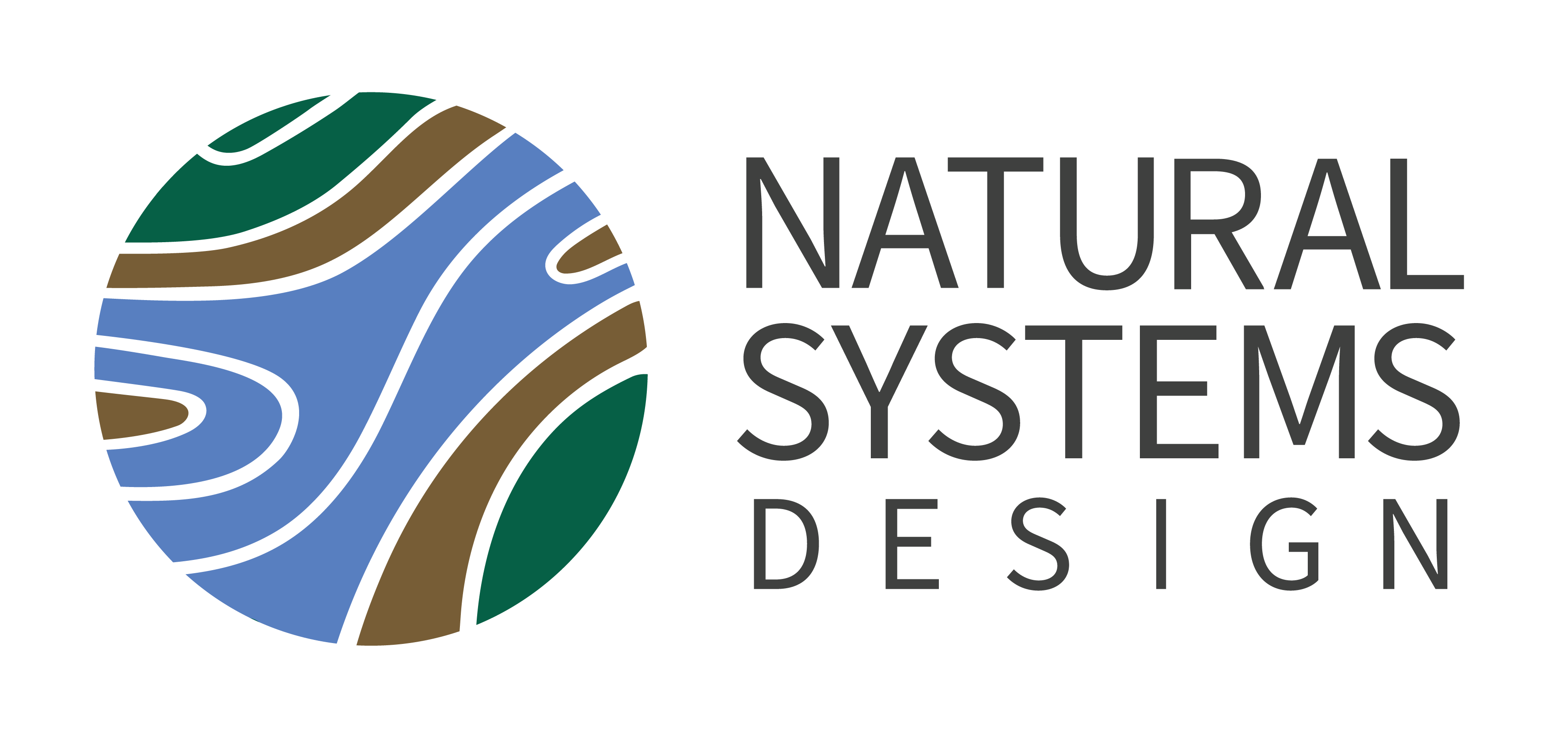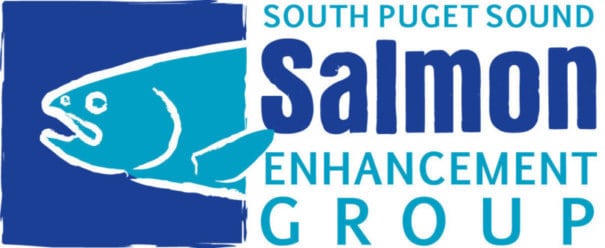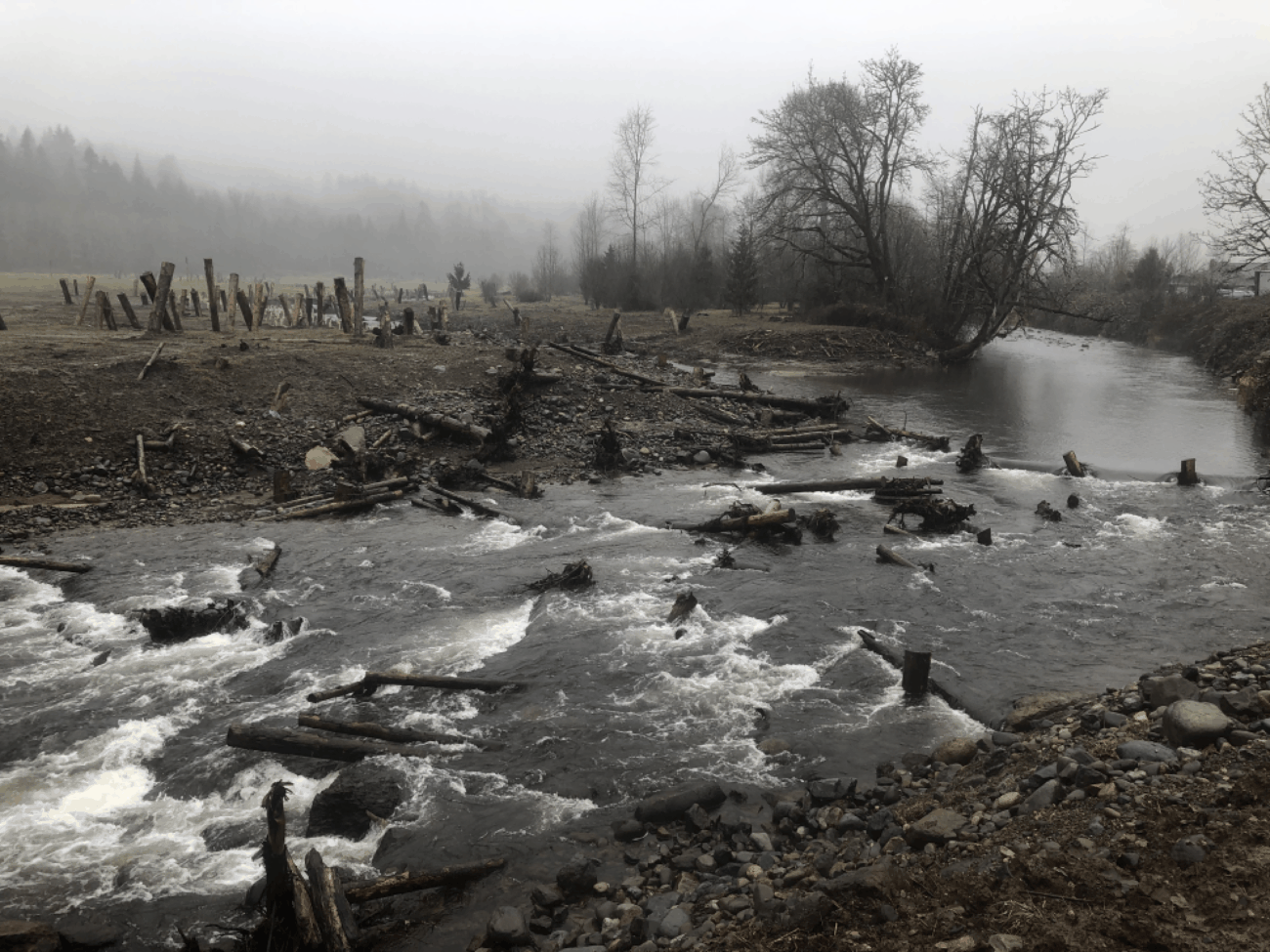A tributary to the Carbon River, South Prairie Creek is a principal salmon bearing stream in the Puyallup/White River watershed. Historic agricultural use contributed to incision, floodplain disengagement, limited instream habitat, and water quality degradation. South Puget Sound Salmon Enhancement Group (SPSSEG) and project partners (Puyallup Tribe, Pierce Conservation District, and Pierce County Surface Water Management Division) engaged NSD to restore floodplain function and off-channel habitat.
NSD’s team of scientists and engineers embarked on a sub-basin scale analysis of the geologic, geomorphic, and hydrologic conditions that influenced the target reach. Combined with reach-scale 2D hydraulic modeling, groundwater analysis, and soil stratigraphy, multiple designs were developed to improve habitat for refuge and spawning, and to re-engage the larger floodplain for native vegetation. All designs were assessed for predicted impacts to FEMA base flood conditions and for potential effect on water supply to adjacent community water tanks managed by Tacoma Water. Design options and analyses, along with each option’s associated balance of benefit, risk, and cost were presented to the project partners. The project partners selected a preferred design of spanning structures that raised the mainstem by 3 feet restoring an anabranching system bifurcating flow into a newly excavated, wood-stabilized historical side channel. The design was constructed during the summer of 2020, supervised directly by NSD engineers. The implementation also required rapid design revision prior to construction to accommodate recent deformation in the mainstem.
Within days of completion, returning chinook were observed upstream of the project, passing all spanning structures in base flow conditions. The project has received enthusiastic praise from WDFW biologists and from environment science professors at the University of Puget Sound, who have used the construction progression to demonstrate large-scale aquatic restoration to their students.
